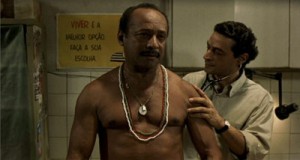The great 19th century psychologist William James had trouble getting out of bed one morning. Describing his struggle he wrote,
The warm couch feels too delicious, the cold outside too cruel, and resolution faints away and postpones itself again and again just as it seemed on the verge of bursting the resistance and passing over into the decisive act. Now how do we ever get up under such circumstances?
What eventually got him out of bed? “We suddenly find,” he writes, “that we have to get up.”
What sparks that feeling? It is not just the need to make a living and get to work. It is not even the sound of screaming kids or an alarm clock. These can assist in waking up, but they do not give us the critical push.
Are We Here To Be Depressed?
The critical push comes from a sense of purpose. It comes from a knowledge that what we do matters. That we have minds, hearts, hands to do something that affects the world. Lacking that sense of purpose leads to what Emile Durkheim called “anomie,” the feeling that nothing we do matters at all. Life becomes an ongoing depression.
The best way to find our purpose is to figure out what we believe in. Every part of us was created in a certain way for a certain reason. We are here for a purpose. We need to align ourselves with that purpose.
Whatever We Have Is Enough
Indeed, one of the morning prayers in Judaism thanks God for every part of our body. Every part of ourselves works to serve the purpose for which we live.
We say this prayer whatever condition we are in. It is not about the exact health of our bodies. It is about the way we look at ourselves. What can we do with what God has given us?
Beethoven, for example, couldn’t hear at the end of his life. Still, he gave us the ninth symphony, one of the most beautiful pieces of music ever conceived.
If We Are Alive, We Have a Purpose
As long as we are alive, we have a purpose. It is easy to become distracted from it. It is not always self-evident.
Writer and blogger Michael Hyatt tells the story of a conversation he had with a beloved pastor. The pastor had recently celebrated his 80th birthday. In the midst of their conversation, the pastor turned to Hyatt and asked him with a note of uncertainty in his voice, “Michael, do you think I have anything left to contribute? Are my best days over?”
Even if we are not 80, we can feel this way. Bruce Springstein sings of it in his song “Glory Days,” which tells of a man’s pining for the high school days when he was a great athlete. It was a time before divorce, difficulty and despair. The song echoes a feeling that our best days are behind us.
Miles To Go
When we have faith that we are here for a purpose, however, we know our best days lie ahead. If we are alive, we have not yet fulfilled it. If we have not yet fulfilled it, we have more work to do. Or, as Robert Frost famously put it, I have “Miles to go before I sleep. Miles to go before I sleep.”
To Receive a Free Book on Forgiveness, sign up for Rabbi Moffic’s weekly email list here.


